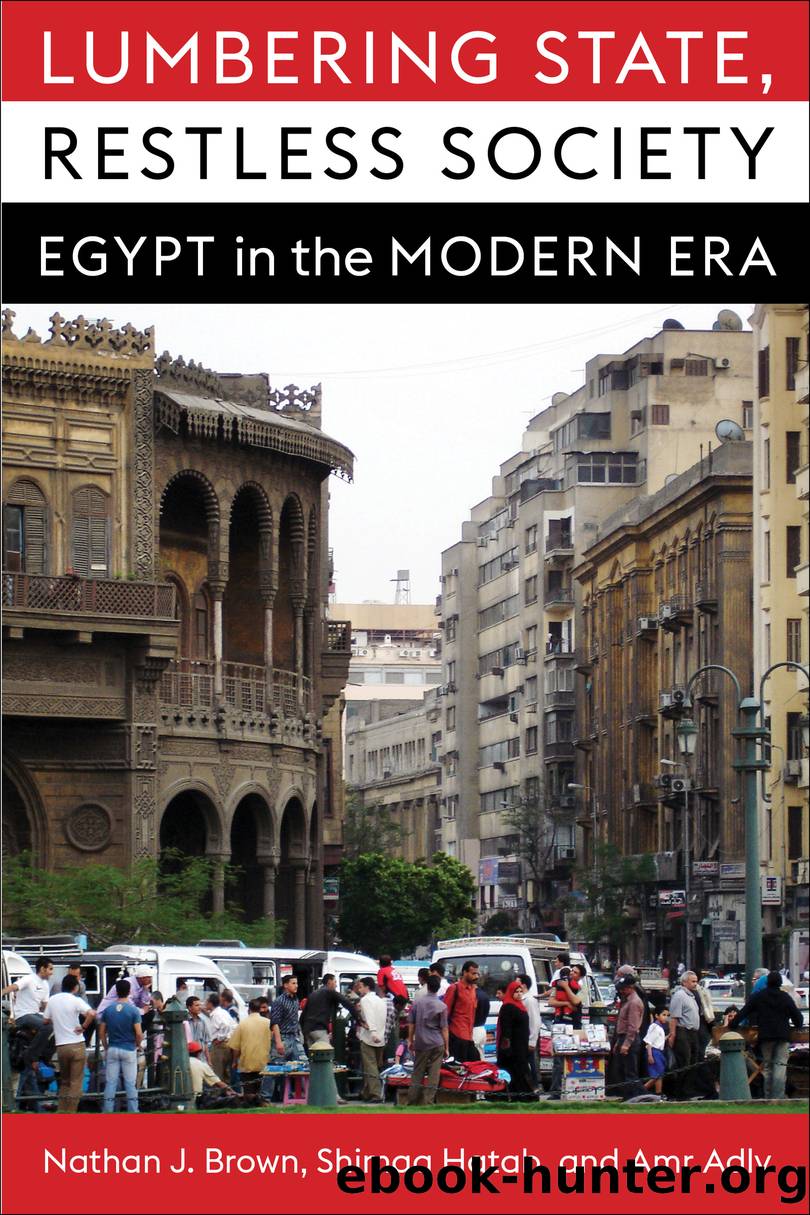Lumbering State, Restless Society by Nathan J. Brown

Author:Nathan J. Brown
Language: eng
Format: epub
Publisher: Columbia University Press
Religion, Market Exchange, and Investment
Economists like to think of markets as places where anonymous individuals seeking to maximize their own profits follow price signals. But in reality, exchange between buyers and sellers is often facilitated or even enabled by social and cultural affinity; after all, if two individuals have personal ties, they are more likely to trust each other. In part 3 of this book, we will explore more fully the concept of âhabitusâ and the way it helps us understand economic relations. For now, we should note that habitus refers to the regularized patterns that people adopt in their interactions with each other; it is the way that regular patterns of social behavior emerge. It thus suggests that understanding society (and economics) depends not simply on isolated individuals each pursuing their own self-interest but also on how those individuals act in a broader social context, enmeshed as they are in institutions, networks, and communities. So we pause here to note that habitus in the form of social ties of various sorts, including community and family ties, all function as social interfaces to market exchange.33 In other words, how people meet, whom they trust, and how they interact, is shaped by the way they are connected sociallyâthe nonmaterial ties that bind them. As explained above, religious norms, identities, and practices in Egypt have always permeated social structures, especially but not exclusively family life. Religion has served as a habitus for business transactions by creating space for cooperation, exchange, and consumption. Religion can play a major role in building trust and sanctioning defection, both as a source of morality as well as a sign of solidarity between members of religious communities. This makes transactions less costly and less risky, especially in imperfect markets where enforcement of contracts is uncertain or inconsistent and basic information is often in short supply (for instance, one party to a transaction might have ties to a state official who knows about a contract that is about to be offered, or businessperson might use their family contacts in order to make deals with trustworthy parties). In such markets, pious groups and networks can step in to develop informal channels for circulating information and sanctioning those who try to cheat or wriggle out of agreements.
Habitus has always been relevant to economic activity, in modern Egypt as in other countries. Before independence, there was a somewhat neat ethno-sectarian division of labor in the economy. Whereas the vast majority of Egyptians (Muslims as well as Copts) were predominantly employed in agriculture (59 percent), just 10 percent worked in industry and transportation, 6 percent in commerce and finance, and 5 percent in services. Foreigners were distributed quite differently, with 24 percent in industry, 22 percent in commerce, and 20 percent in finance.34 Foreigners or residents who belonged to ethnic and religious minoritiesânamely, Jews, Greeks, Italians, Armenians, and Christian Levantinesâdominated the biggest and most modern economic units.35 Their educational levels were generally higher than others and they enjoyed cultural and economic ties to Europe, consular protection, and other privileges under the capitulations system.
Download
This site does not store any files on its server. We only index and link to content provided by other sites. Please contact the content providers to delete copyright contents if any and email us, we'll remove relevant links or contents immediately.
| Bahrain | Egypt |
| Iran | Iraq |
| Israel & Palestine | Jordan |
| Kuwait | Lebanon |
| Oman | Qatar |
| Saudi Arabia | Syria |
| Turkey | United Arab Emirates |
| Yemen |
Empire of the Sikhs by Patwant Singh(23066)
The Wind in My Hair by Masih Alinejad(5085)
Rise and Kill First by Ronen Bergman(4772)
The Templars by Dan Jones(4678)
The Rape of Nanking by Iris Chang(4194)
12 Strong by Doug Stanton(3541)
Blood and Sand by Alex Von Tunzelmann(3190)
Babylon's Ark by Lawrence Anthony(2666)
The History of Jihad: From Muhammad to ISIS by Spencer Robert(2615)
No Room for Small Dreams by Shimon Peres(2357)
The Turkish Psychedelic Explosion by Daniel Spicer(2352)
Inside the Middle East by Avi Melamed(2347)
Gideon's Spies: The Secret History of the Mossad by Gordon Thomas(2331)
Arabs by Eugene Rogan(2292)
The First Muslim The Story of Muhammad by Lesley Hazleton(2258)
Come, Tell Me How You Live by Mallowan Agatha Christie(2246)
Bus on Jaffa Road by Mike Kelly(2148)
1453 by Roger Crowley(2018)
Kabul 1841-42: Battle Story by Edmund Yorke(2014)
